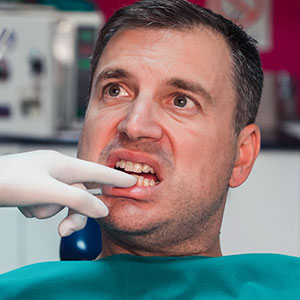Rock guitarist Eddie Van Halen died last fall after a long battle with oral cancer, another in a long line of performers, athletes, politicians, and other well-known personalities with this serious form of cancer. But household names like Van Halen are just the tip of the iceberg: Around 50,000 Americans are diagnosed with oral cancer each year.
Although not as common as other malignancies (around 2.5% of total cancers), oral cancer has one of the lowest five-year survival rates at a dismal 57%. Part of the reason for this has been the longstanding difficulty detecting it in its earlier stages: Early signs are easy to miss or mistake for a benign sore. As a result, it’s often diagnosed after advancing significantly, complicating treatment efforts.
To improve survivability, the Oral Cancer Foundation designates each April as Oral Cancer Awareness Month to better educate people on this deadly disease. Here are 3 things you can do to prevent oral cancer or improve your survival odds if you encounter it.
Know your individual risk factors. Some risk factors for oral cancer are out of your control—for example, your risk may be higher if you’re a male over 40, or if you’re African-American. But there are also factors you can control like tobacco use, high alcohol consumption or a poor diet, all of which can elevate your cancer risk. You can lower that risk by making lifestyle changes for factors you can control and prioritizing cancer screening if you have factors that you can’t.
Pay attention to oral “oddities.” A small mouth sore or patch of odd-looking skin may be nothing—or it may be the beginning of oral cancer. If you do notice something unusual, especially if it seems to linger beyond a couple of weeks, have us examine it as soon as possible. If it does appear suspicious, you may need to undergo a biopsy, a cancer analysis of the suspected tissue. If it is cancerous, an early diagnosis could improve your outcome.
Visit your dentist regularly. There’s more to semi-annual dental visits than teeth cleaning. Regular dental visits are an important component in your “early warning system” for oral cancer—we may notice something suspicious during your regular visit, often before you do. If you’re older or have other risk factors for oral cancer, we can expand your regular exam to include a comprehensive cancer screening.
Oral cancer is a serious matter. But taking steps to prevent it and staying alert to its warning signs can help you overcome it.

